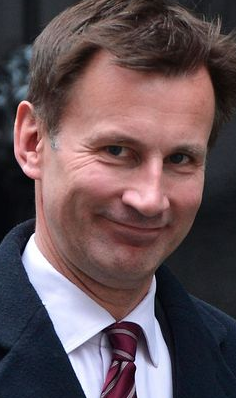 Slog whistle-blower slams Hunt wheeze, says food costs “will have to rise tenfold”
Slog whistle-blower slams Hunt wheeze, says food costs “will have to rise tenfold”
A seemingly laudable plan from the DoH to improve patient nutrition and food quality will put the hospital trusts under yet more pressure, claims a senior source in the public health sector. The initiative launched today arrives in the context of huge cuts in NHS Trust food costs in recent years, soaring food inflation, and rising costs in the treatment of cancers and tumours. Significantly, Mr Hunt is not bringing any budget increases to the table.
You have to hand it to Health Secretary Jeremy Hunt, he is a master of looking holy while doing something pernicious.
Today, the man who Did Nothing Wrong is introducing five new hospital meal standards. But there is really a lot more to it than that. He is also demanding that every patient entering hospital should be screened for malnutrition and be given a personalised food plan…..and that any patient who needs help from staff to eat or drink should receive it.
It all sounds very wonderful, but why should the NHS be asked to monitor and then cough up for the state of the malnourished with lousy pensions and poor welfare cover? Isn’t that Ian Duncan-Smith’s problem? And it’s fine to set must-haves from nurses, but will there be more in the budget for this, and will the nurses get a pay-rise? No, of course not.
The not entirely hidden agenda here is highlighted in this extract from Hunt’s spin-pack (my italics):
The standards will also stipulate that Hospitals not implementing all the required changes will be in breach of their contracts with the GP-led NHS local clinical commissioning groups (CCGs) which pay them to treat patients.
Ahaaa….the Conservative-installed CCGs again. Those folks who see themselves as entrepreneurs, and as a result of this get a staggering 80% of the NHS budget, while the hospital trusts – with all their physical infrastructure, expensive consultants and escalating equipment costs – have to struggle along on a fifth of the budget.
The hospitals (the bit the private sector wants, because the technology and infrastructure are invaluable) are already answerable to the CCGs, and GP practices are being rapidly privatised. It is entirely in the interests of people like Virgin Health in the GP sector to find hospitals ‘guilty’ on the food issue, as hospital insolvency (and subsequent ‘rescue’ by them at a rock-bottom prices) are precisely what they want.
The Mail reports this morning that standards will be monitored by the Care Quality Commission as part of routine hospital inspections. If a trust breaches these standards, they could be fined by the local CCG.
The Dacre Mail trumpets, of course, is that Hunt’s insistence on higher quality food is all down to its fearless campaign about hospital meals. But here are the facts that suggest hospitals are being asked to do the loaves and fishes miracle, minus only Jesus of Nazareth:
* Around one in five trusts have reduced spending on food at some point since 2005, because rising costs alongside static real-terms budgets forced them to do so.
* St George’s Hospital in South London used to spend £6.67 a day….now it spends £3.11 a day.
* The cutting trend, however, has recently accelerated. The Daily Telegraph reported last January that one in three hospital trusts have cut spending on patients’ meals in the past year, and that some trusts have cut expenditure by two-thirds. The Tory-leaning paper fully accepted that the cause of the quality fall-off was ‘NHS finance managers facing growing pressure to reduce costs’.




